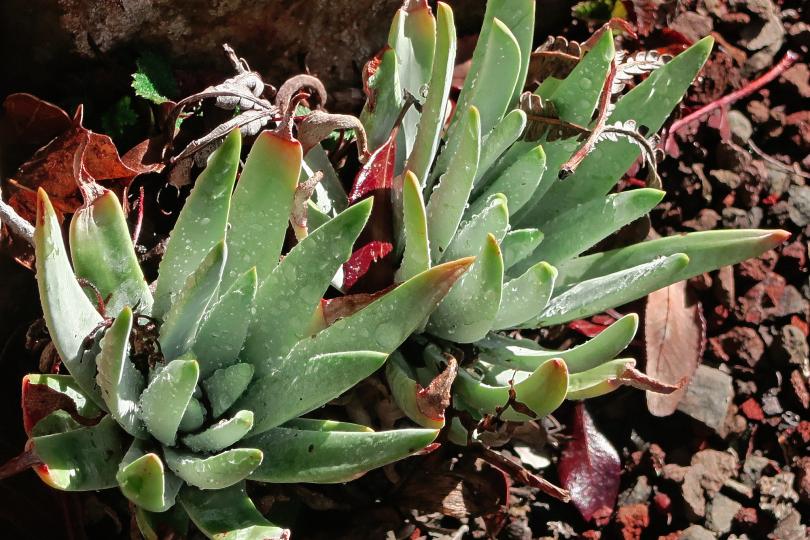Jensen on how native California succulents stop erosion, but need protection from poaching
The LAist featured Nick Jensen in their recent story about how native plants help hold up California hillsides when hit with severe weather. Mariana Dale writes:
“Dudleya are green succulents with pointed leaves. They look a lot like the common echeveria you’d find at many grocery stores.
But dudleya are special. There are dozens of species— 26 of them are native to California and 10 are considered threatened or endangered.
“Dudleya are gang,” Jessie Dickson [aka sacramentofoodforest] says. “Nothing is more gang than a plant that holds a wall together.”
While he wouldn’t use the word “gang,” California Native Plant Society Conservation Director Nick Jensen says [Dickson's] video is right.
The roots of native plants can hold soil in place.
“If you remove dudleya or if you remove other plants… you can have erosion which otherwise essentially destroys the habitat,” Jensen said. Dudleya are also an important source of food for pollinators like hummingbirds and bees.
Dudleya Need Protection
Development threatens many native plants, but succulents’ trendiness and colorful flowers mean dudleya face a unique threat — poaching.
In recent years, people have uprooted the California dudleya and sold them overseas — sometimes for hundreds of dollars.
The California Native Plant Society sponsored a bill passed in 2021 that increases the penalties for dudleya poaching. Assembly Bill 223 makes it a misdemeanor to sell a plant that was taken from public or private land without permission. The fine for selling at least $250 worth of the plant starts at $5,000.
Jensen says the law is only part of the solution.
“One of the things that people can always do to promote the conservation of native species is just appreciate them in their native habitat,” Jensen said. Take note of where you see dudleya in the wild — and if you notice them being disturbed, contact law enforcement or the California Native Plant Society, Jensen said.

